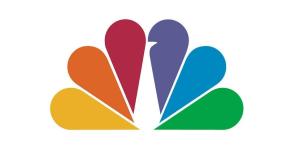Facebook is back at full speed a day after its biggest outage blackout ever.
The company blamed a change it had made to its system for the outage, saying that the issue had been resolved and that its systems were recovering.
Videos by PopCulture.com
“Yesterday, as a result of a server configuration change, many people had trouble accessing our apps and services. We’ve now resolved the issues and our systems are recovering,” Facebook wrote from its official Twitter account on Thursday. “We’re very sorry for the inconvenience and appreciate everyone’s patience.”
Yesterday, as a result of a server configuration change, many people had trouble accessing our apps and services. We’ve now resolved the issues and our systems are recovering. We’re very sorry for the inconvenience and appreciate everyone’s patience.
— Facebook (@facebook) March 14, 2019
The company continues to deny that the issue was caused by a hack or attack, with a company spokesperson telling CNN Business that it was focused on resolving the issue and hoped to eventually share more details about what caused the nearly 24-hour blackout.
The interruption also extended to Facebook-owned apps like Instagram, Messenger and WhatsApp, totaling more than 2 billion users who were unable to gain access to the online services from Wednesday until Thursday afternoon.
In 2008, Facebook was knocked offline by a bug that affected many of its 80 million users. That outage lasted for about a day. Today, Facebook boasts 2.3 billion monthly users, The Verge reports, making the recent outage the worst yet for the company.
The outage-tracking website Down Detector showed significantly fewer people having issues accessing Facebook and Instagram on Thursday as compared to Wednesday, when the outage began. Facebook’s outage spanned the globe, with reports of disruptions concentrated on the U.S. East Coast and in the U.K.
Anddddd… we’re back. pic.twitter.com/5E8UdlcsPJ
— Instagram (@instagram) March 14, 2019
For some, the services were completely inaccessible. For others certain features like stories or direct messaging stopped working. The interruption also affected gameplay for owners of Oculus VR headsets, a company that Facebook bought in 2014. Some sites, like Tinder or Spotify, which use Facebook credentials, were unable to authorize logins.
The outage wasn’t just an inconvenience; it caused Facebook’s stock to plummet nearly 3 percent in early morning trading on Thursday, and could have financial consequences for the company.
Facebook product director Rob Leathern said on Twitter that people were also unable to access the social network’s ad interfaces, which may exacerbate any lost revenue from the outage.








